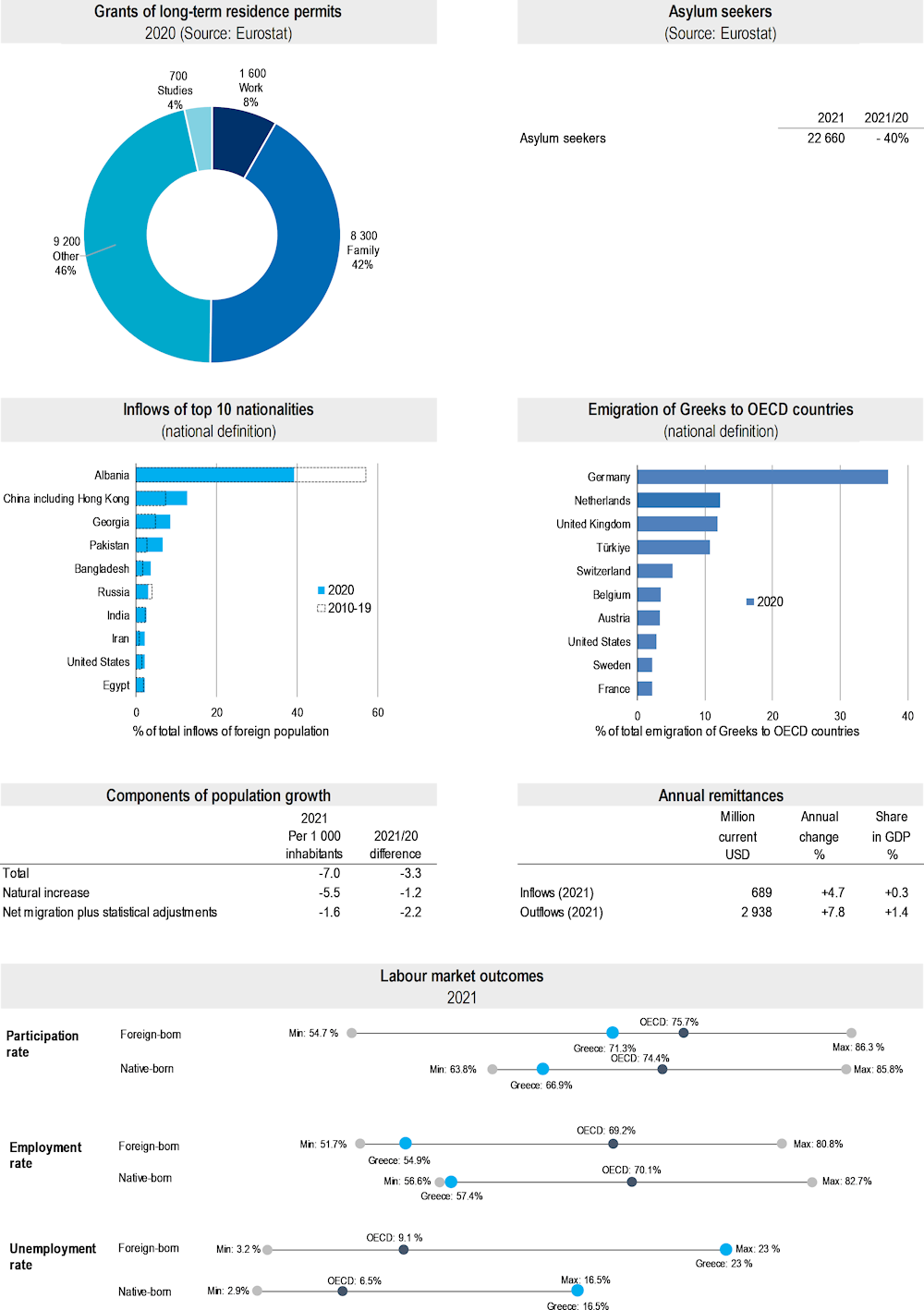In 2020, 20 000 new immigrants obtained a residence permit longer than 12 months in Greece (excluding EU citizens), ‑53.2% compared to 2019. This figure comprises 8.2% labour migrants, 42% family members (including accompanying family), 3.5% who came for education reasons and 46.3% other migrants. In addition, 11 000 intra-EU postings were recorded in 2020, a decrease of ‑35% compared to 2019. These posted workers are generally on short-term contracts.
In 2021, the number of first asylum applicants decreased by ‑40.1% to reach around 23 000. The majority of applicants came from Pakistan (3 400), Afghanistan (3 200) and Syria (2 900). The largest increase since 2020 concerned nationals of Bangladesh (860) and the largest decrease nationals of Afghanistan (‑7 900). Of the 37 000 decisions taken in 2021, 44% were positive.
In June 2021, Greece started COVID‑19 vaccinations in migrant camps of Lesbos, Samos and Chios islands. On mainland camps, the authorities launched a dedicated vaccination campaign available to all those without social or health security number. To ensure that everyone can access vaccination, Greek authorities issued a temporary social security number (AMKA) to all foreigners and uninsured individuals TCNs. In August 2021, the Ministry of Migration and Asylum activated the online platform for automatic renewal of residence permits until December 2021.
In March 2021, in the context of the digital transformation of the asylum process, the Ministry of Migration and Asylum proceeded to digital issuance of a Tax Identification Number (AFM) to TCNs or stateless persons who are holders of the International Protection Applicant Status.
In September 2021, a one‑year renewable visa was created for digital nomads working from Greece, whether self-employed or employed by a foreign company. This visa grants holders immigration status, under income conditions, but does not allow to change status or work in Greece.
As of 1 October 2021, the Ministry of Migration and Asylum took the responsibility for implementing the financial assistance programme for applicants for international protection implemented until then by UNHCR.
In August 2021, the Greek Government introduced a new legislation initiative aiming to accelerate deportations of irregular migrants. The new legislation reduces the period for deportations from 30 days to between a week and 25 days and make it more difficult for migrants to challenge a deportation order by applying a stricter definition to what can be regarded as “humanitarian grounds”.
In 2021, new provisions relating to residence permits for investors were put in place, allowing investors to apply for a residence permit without coming to Greece. They still have to come to Greece to submit biometric data within one year from the application date.
In October 2020, the citizenship code was amended (Ministerial Decision Prot. No. 2984/2021) and established for the first time specific and strict economic criteria for applicants for Greek citizenship. The decision clarifies that applicants must prove that their annual income ensures an adequate standard of living without burdening the Greek welfare system.
Further information: www.migration.gov.gr | www.astynomia.gr | www.statistics.gr

